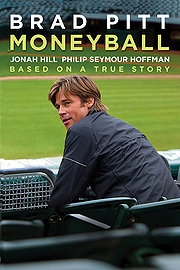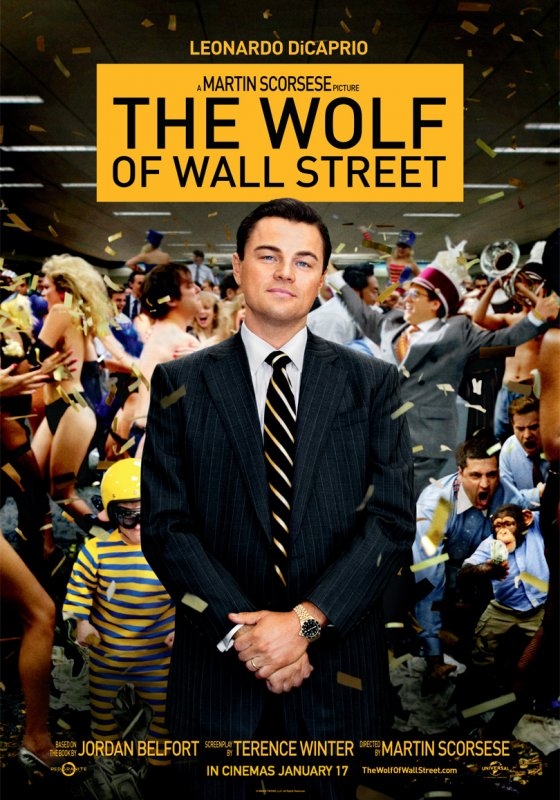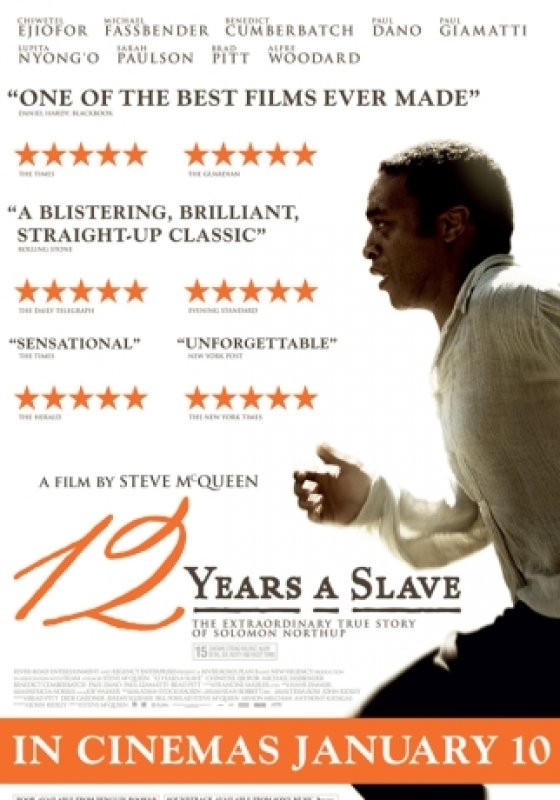Moneyball

As I recall, the last True-Story-Sports-Story film that made a real impact on the Hollywood scene was 2010’s The Blind Side. A rosy-hued tale of treating a team and its players like a family, of strong morals, and of stronger heart, it’s fair to say that it could not be less like Bennett Miller’s Moneyball. Fast-paced, wry, and centred on the power of knowledge rather than that of The Human Spirit, Moneyball still manages to be just as – if not far more – engaging than its american footballing predecessor. Spot on casting, a razor-sharp script and entirely unpretentious direction; baseball fans, step aside. This one is for film lovers everywhere.
Billy Beane (Brad Pitt) has been general managing the Oakland Athletics for a few years now. Every season he puts a team together, every year they play to win, and every year they get their best players plucked from their ranks by the teams with the bigger budgets. Having just lost his three stars: Louie Mcbaseball, Billy Batface and – trust us, it doesn’t matter – to teams like the Red Sox and the Yankees, Billy is beside himself with frustration. The A’s (that’s right, we know team speak now) budget means they simply can’t compete with the big boys, and his collection of talent scouts seem content with always finishing below the number one spot. But Billy isn’t. There has to, there has to be another way. And when he meets young economics graduate Peter Brand – a boy who believes he’s come up with a new system of assessing what makes a good player and what doesn’t – he decides to put his entire career on the line to implement his method.
The technique is called sabermetrics, and it judges players’ worth entirely on their statistics – specifically their ability to get ‘on-base’. It’s simple enough for even the most clueless sports-flincher (hi there) to understand: if your player gets on-base, then the team gets points. The team gets enough points, they win. Simple as that. Tossing aside hundreds of years of in-depth game analysis, sporting experience, context, personality, history and tradition, the sabermetrics method recommends players that have been entirely overlooked by the big teams and thus are well within the Oakland A’s budget. But with every expert on hand open-mouthed with horror at the madness of hiring a team full of nobodies, it’s up to Billy and Peter alone to keep the faith in the science.
First things first; Moneyball‘s script is a thing of beauty. Originally by Steven Zaillian (writer of films such as Schindler’s List and Mission: Impossible) and sharpened by Aaron Sorkin (The Social Network, every brilliant tv show ever), it perfectly combines Zaillian’s plotting skills and Sorkin’s dialogue genius to produce a constantly exciting, ever-pressing tale that neither sags nor gets stuck in the technicalities of its sporting context or its statistical catalyst. Brad Pitt’s Billy cuts impatiently through what he sees as an antiquated system with a perfect combination of arrogance, charm and love for the game he’s followed his whole life, matched perfectly by a surprisingly subtle performance by Jonah Hill as Paul. The highlight of the entire film – a breathtakingly slick four-way phone conversation where Billy and Paul rapidly trade existing players for the ones they want – perfectly showcases Moneyball ‘s every strength: unemotional direction, punchy dialogue and two performers on top form. It’s a celebration of thinking differently, of disregarding personal relationships in pursuit a higher goal and its true story groundings mean that you can’t help but fight with Billy, Paul and their unconvential cause every step of the way.
My only criticism of Moneyball is that it does, eventually – perhaps inevitably – succumb to a ever-so-slighlty schmaltzy ending unworthy of the cool logic it trumpets throughout. A rather unnecessary throughline about Billy and his relationship with his daughter heeds this warning from the beginning, but it’s still a bit of a shame that Big Hugs And Teary Eyes are allowed to get a look in. Still, even the hardiest of cynics can’t fail to be won over by, and with the invariable “luv yoo dad” buffer scenes woven in cleverly enough to get away with it, we’re hardly distracted from what is otherwise a pitch-perfect tale. Maths, baseball and the triumph of impersonality – it’s not a team anyone would have looked twice at, but you can’t argue with the results.









Recent Comments